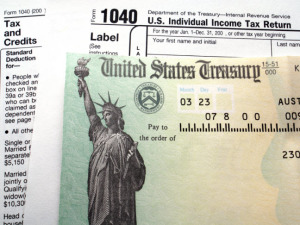 Today’s top story: How you may be accidentally wrecking your credit. Also in the news: What an unexpected windfall means for your taxes, the money moves you should make in March, and how to give your 401(k) a boost.
Today’s top story: How you may be accidentally wrecking your credit. Also in the news: What an unexpected windfall means for your taxes, the money moves you should make in March, and how to give your 401(k) a boost.
5 Ways You’re Accidentally Wrecking Your Credit
Ignorance isn’t bliss.
Received a Bunch of Cash? How It Will Impact Your Taxes
Don’t book that trip around the world just yet.
Your Best Money Moves for March
What to do to get ready for spring.
Amp Up Your 401(k) No Matter How Much You Earn
Give your savings a boost.






